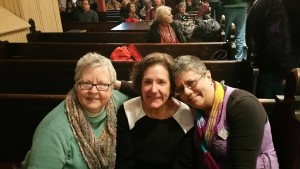“No’ is one of the shortest words in the English language and one of the most difficult to say for some people, unless the person happens to be two years old and then it might well one of their most favorite to utter. It implies disagreement, disapproval, a sense of refusal and lack of cooperation. Sometimes we need to say it and sometimes we need to hear it. Sometimes a no to one person or experience opens the door to something even grander than could be imagined and a great big, resounding YES!
‘No’ also provides information. If someone asks for directions, for example and they query “Is Main Street that way?” and you know it isn’t and tell them no, then you are helping them out. ‘No’ grants permission to do something other than what is expected of you. If you are accustomed to being a ‘yes man or woman,’ then saying the two letter word that is a complete sentence can take you away from habitual patterns.
There is a meme going around the reads “Learn to say no without explaining yourself.” This is my growing edge, since I have had a history of people pleasing and emotional contortionism, which means that there were times when I would ‘bend over backward to please people’. When I have done that, I have robbed myself of the freedom to feel whatever I may in the moment. Just what is it that we humans fear if we say that ‘magic word? What arises in me is a worry that people won’t like me, or whatever project in which I am engaged, if ‘no’ comes through me. Testing the waters proved to me that I was not abandoned when I declined invitations to events, when I put aside the obsessive desire for approval, when I was unavailable to meet people’s needs. I have to admit that hearing ‘no’ isn’t much fun. Of course, we want to hear an enthusiastic yes to our requests. After all, we think that our desires are reasonable, so why wouldn’t anyone agree to meet them?
One of my many hats is that of a certified facilitator of a relationship enhancing workshop called Cuddle Party. It focuses on communication, boundary setting and safe, nurturing, non-sexual, consensual touch. What that means is that no one touches anyone, even if they know them well, without asking first and receiving a verbal yes. During the experience, there is what is called “The No Exercise,” which gives people an opportunity to practice using the word in a ‘lab setting’ so that they can then apply it in their personal and professional relationships. What we teach is that saying no doesn’t make you a bad person and hearing no doesn’t make you a loser, despite what people might think.
I encourage you to do a check in with yourself when asked to do something to determine if you are a yes or no to it. If your body had a voice to express your yes or no, which would it say? A felt sense, a gut reaction, a uh uh, this doesn’t feel right, might come through.
While there are certain things that are necessary to do in order not to have negative consequences, such as adhering to the speed limit on the road, or paying bills we incur by using services, not everything is a requirement. In the past few months, since the heart attack, I have done some major re-evaluation of my re-negotiation skills. It might have been unthinkable a year ago, to say N-O as often as I do now, if I don’t have the energy or ability to keep up the pace. Naps sometimes take precedence over going out to play. I don’t feel like a slacker or irresponsible person if I honor my right to say yes or no with equal ease. I invite you to do the same and feel the freedom gained.

